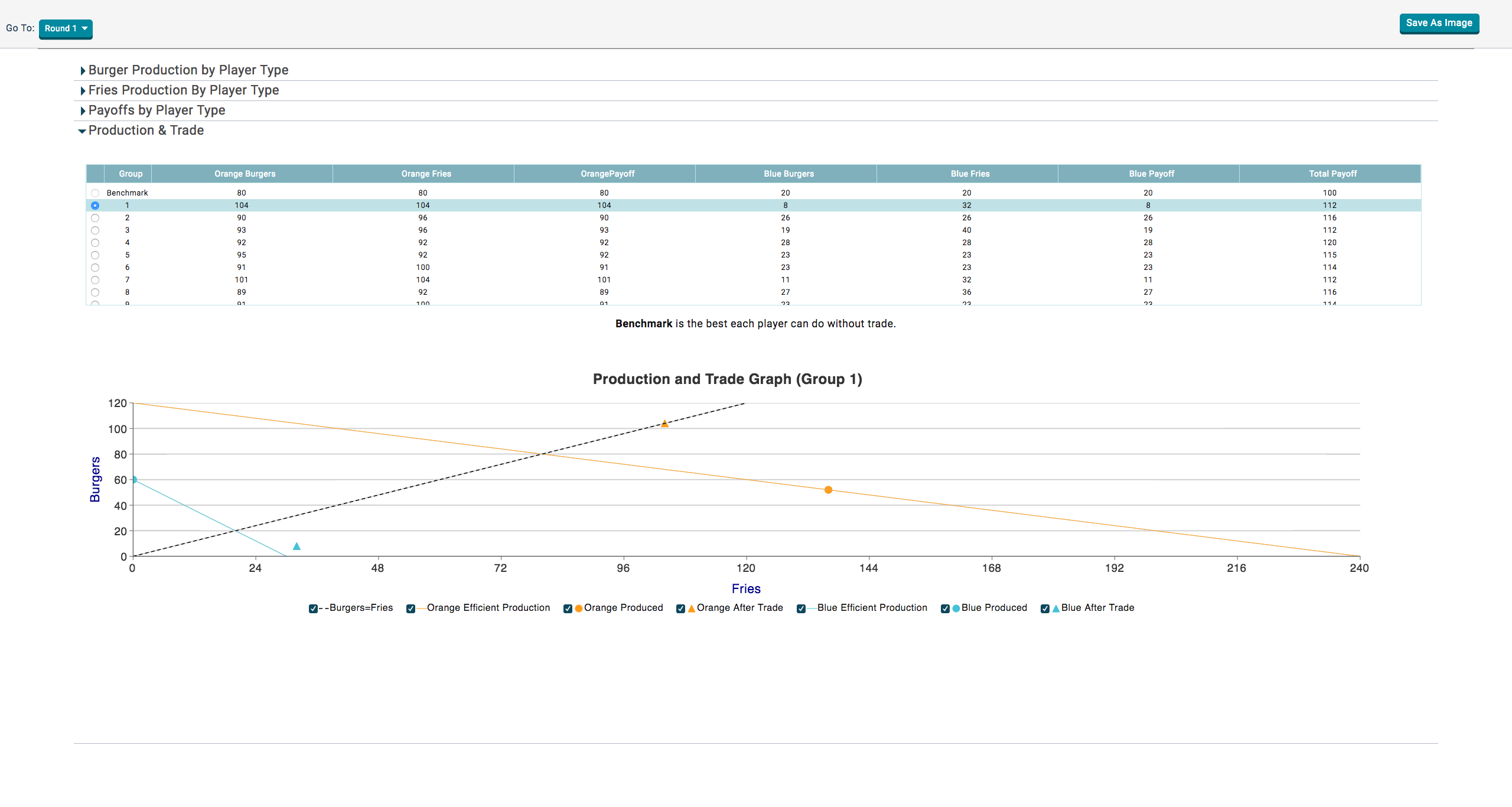Student heart's rejoice! Economics classes are starting around the world and many instructors are populating their MobLab playlists with our Comparative Advantage game. In this game each student operates a food truck and allocates their time to the production of hamburgers and french fries. Students are either "Orange" (4 Burgers/Minute or 8 Fries/Minute) or "Blue" (2 Burgers/Minute or 1 Fries/Minute) and all earn points in the game equal to min{burgers, fries}.When playing this game we recommend instructors sequence the game (i.e. create two games with different features and play them back-to-back): (1) No Trade, followed by (2) Trade Allowed. By unchecking the "Allow Trade" button the students engage in production only. Doing this first serves two purposes. First, it allows students to become familiar with the interface and to comprehend the min function that determines how they earn points. Second, running Production Only before Trade Allowed provides a good mental benchmark for students to compare trade outcomes against. In particular, it shows the students who have an absolute advantage (the "Orange" types) in the production of burgers and fries that they still benefit from trade and the heart of comparative advantage is opportunity cost.Although the default in the Comparative Advantage game is one round we recommend playing at least two rounds (at two minutes a piece) of the "Trade Allowed". This helps to ensure you will get some good data to show students on how trade benefited them.Upon completion the data is immediately available. The "money graph" is under the "Production & Trade" heading. It shows the Production Possibilities Frontier (PPF) for both Orange and Blue types, the Orange/Blue production decisions within each pairing, and the after-trade bundle of burgers and fries. As always the graphs are interactive so you can isolate the PPF or data that you want to talk about with students. Did You Know: In his book Wine, War, and Trade, John Nye notes that David Ricardo's example of trade between Britain and Portugal was quite awful. The Methuen Treaty of 1704 provided Portugal a preferential tariff on wine (compared to other wine producing nations like France) in exchange for Portugal purchasing British cloth. The trade arrangement did not emerge as a function of differential efficiency in each good's production!
Did You Know: In his book Wine, War, and Trade, John Nye notes that David Ricardo's example of trade between Britain and Portugal was quite awful. The Methuen Treaty of 1704 provided Portugal a preferential tariff on wine (compared to other wine producing nations like France) in exchange for Portugal purchasing British cloth. The trade arrangement did not emerge as a function of differential efficiency in each good's production!
 Did You Know: In his book Wine, War, and Trade, John Nye notes that David Ricardo's example of trade between Britain and Portugal was quite awful. The Methuen Treaty of 1704 provided Portugal a preferential tariff on wine (compared to other wine producing nations like France) in exchange for Portugal purchasing British cloth. The trade arrangement did not emerge as a function of differential efficiency in each good's production!
Did You Know: In his book Wine, War, and Trade, John Nye notes that David Ricardo's example of trade between Britain and Portugal was quite awful. The Methuen Treaty of 1704 provided Portugal a preferential tariff on wine (compared to other wine producing nations like France) in exchange for Portugal purchasing British cloth. The trade arrangement did not emerge as a function of differential efficiency in each good's production!

